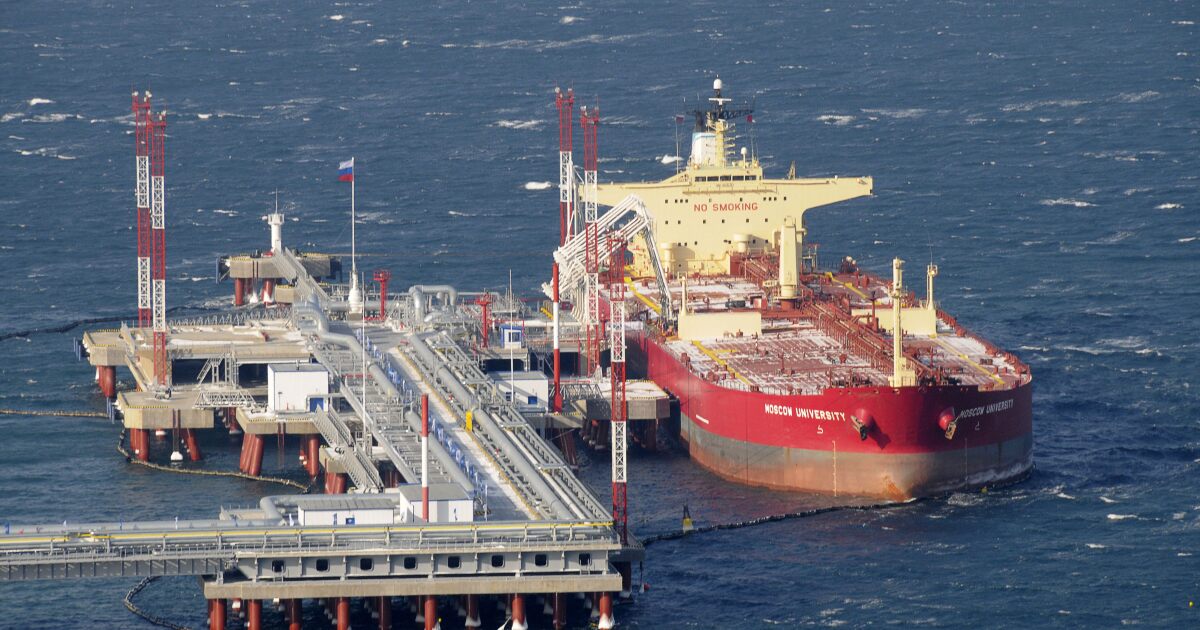

The United States imposed new sanctions on several entities on Thursday for violating the terms of the Russian oil price cap, furthering its plan to crack down on shipments of oil above the price set by G7 leaders in December.
Treasury Department officials said Thursday that the three entities sanctioned are all United Arab Emirates-based shippers and vessels that had used U.S.-person services for transport while continuing to ship Russian crude oil above the $60 cap.
WHAT TO KNOW ABOUT BIDEN STRATEGY FOR OPENING UP SPECTRUM AND IMPROVING 5G
The entities sanctioned were Kazan Shipping, Progress Shipping, and Gallion Navigation.
“Shipping companies and vessels participating in the Russian oil trade while using Price Cap Coalition service providers should fully understand that we will hold them accountable for compliance,” Deputy Treasury Secretary Wally Adeyemo said Thursday.
“We are committed to maintaining market stability in spite of Russia’s war against Ukraine while cutting into the profits the Kremlin is using to fund its illegal war and remaining unyielding in our pursuit of those facilitating evasion of the price cap,” he added.
The sanctioned entities will see all their U.S. assets frozen and be restricted from any transactions with U.S. people unless specifically authorized by the Treasury’s Office of Foreign Assets Control, or OFAC.
The sanctions come as a response to mounting data that Russia is shipping large amounts of its crude oil at prices above the cap, allowing it to earn far more in profits than expected.
In October, the U.S. and other price cap and other coalition members published an advisory outlining best practices for shippers and reiterating their ability to punish any shippers that use Western service providers while shipping oil above the price cap, which stands at $60 per barrel for Russian crude and $100 for refined Russian petroleum products, such as gasoline or diesel.
One senior European Union official told the Financial Times this week that “almost none” of Russia’s seaborne crude exports in October were sold under the $60 capped price, underscoring the need for stronger enforcement.
Meanwhile, the European Commission is also weighing new reinforcement measures, including adding new export control mechanisms to its upcoming sanctions package. Danish authorities would be tasked with inspecting and blocking any oil tankers that sail through their waters and are found to be violating the price cap, the Financial Times reported.
CLICK HERE TO READ MORE FROM THE WASHINGTON EXAMINER
Roughly 60% of Russia’s Baltic Sea crude exports cross through the Danish strait to reach international markets, making it a key point for Western leaders to examine and enforce the terms of the cap.
Leaders could approve that as early as Friday, when the EU’s latest Russian sanctions package is expected to come up for a vote.





